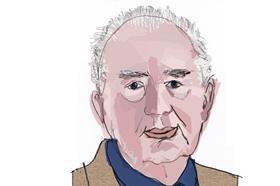Not too many criminals have changed the law, but Abraham Thornton did after he was acquitted when few thought he was innocent of the rape and murder of Mary Ashford. She had been seen dancing with him at a public house in Erdington, now a Birmingham suburb. The next morning she was found dead in a pit.

After Thornton’s acquittal, in 1817, her brother William had him rearrested on a Writ of Appeal, paid for by public subscription. Thornton, a bull of a man, elected Trial by Battle (or Combat). Long thought to be obsolete but remaining on the statute books, the last recorded Trial by Battle had taken place in 1631. Then, a servant accused of theft fought his master and, since the master drank too much wine before the combat, the servant won. It seems Charles I had intervened on two occasions to prevent trials by combat but since then – nothing.
An election for Trial by Battle could be rejected if the evidence was thought to be overwhelming but, after hearings running over six months, Lord Ellenborough ruled that it was the law. Thornton’s counsel symbolically threw down a gauntlet which Ashford, a much smaller man, refused to pick up. Why should Thornton be allowed to murder a second member of the family?
Given this refusal, Thornton left the court and indeed the country a free man, sailing to America in disguise. His first attempt at emigration had failed when sailors discovered who he was and put him off the boat.
In February the next year, Trial by Battle was formally abolished. In the past 100 years, there have been sporadic attempts by defendants to claim the right. In 2002 a Suffolk mechanic, claiming his human rights allowed this, challenged the Driver and Vehicle Licensing Centre to produce a champion to fight him to the death over a disputed traffic offence. Unsurprisingly, Bury St Edmunds magistrates refused to countenance this, instead fining the man £200 with £100 costs.































No comments yet